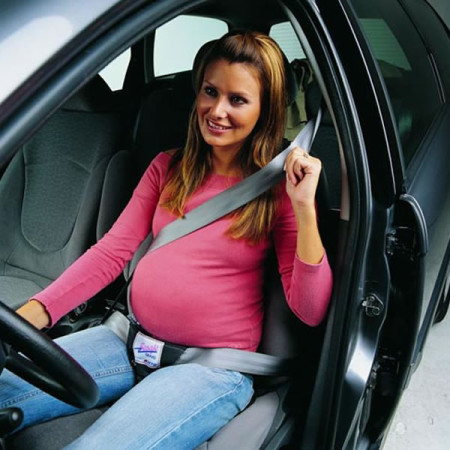Pregnant women worry almost about everything that could potentially harm their unborn baby. From the negative effects of hot bath to the toxic effects of whitening products, expectant moms obsess over the littlest detail that might affect the development of their child. However, only a few seem to worry about the one activity we usually do every day that sends an alarming number of pregnant women to the E.R.: driving.

While it’s not easy to drive with a 25-pound belly bulging in between you and the wheel, you can do something to ensure pleasant and safe travel in your state of condition. Here are some reminders before hitting the road with your precious cargo.
- Asses Your Current State
Before leaving, try to assess first if you’re fit to drive. Can you focus driving despite the swollen feet? Are you feeling nauseated or dizzy? Did you get enough sleep and rest? Answer these questions before getting behind the wheel. If you feel any discomfort that obstructs your concentration on the road, ask somebody else to drive you.
- Secure a Pregnant Driver’s Kit
This includes a bottle of water and your medication. Also, bring other necessary papers that contain your medical information and emergency contact numbers (e.g. your partner, your OB-gyn and a family member who can assist you in case of emergency). Don’t forget to bring your health card as well, if you have one.

- Wear Your Seatbelt
Some pregnant women worry about wearing seatbelt because it restricts the belly and may harm the baby, especially then the driver hits the brakes abruptly. However, doctors argue that it’s much safer for both the mother and the baby if she wears a seatbelt. The best you can do is to place the lapbelt under the bump, instead of over it; while let the torso belt run between the breasts down to the side of your body.
- Take Short Breaks During Long Trips
If it’s going to be a long drive, leave home much earlier so you’ll have extra time for a few breaks along the way. Park in a gas station for a couple of minutes, drink water, grab a snack, stretch your legs and arms and move your toes. You can also rest your eyes for a while to avoid nausea and dizziness. After getting yourself comfortable again, you can then start driving.
Your condition is much more sensitive than when you weren’t pregnant, so make sure to take precautionary measures with whatever you do. Driving may seem like an easy everyday task, but when your condition and unstable hormones (due to pregnancy) comes to picture, extra care is necessary to ensure your and your unborn baby’s welfare.
